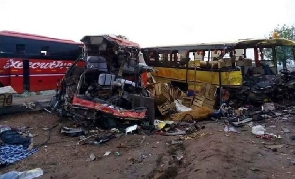Business News of Tuesday, 13 October 2015
Source: B&FT
Public purse remains exposed—Kan-Dapaah
Executive Secretary of FAT-Africa and former chair of the Public Accounts Committee (PAC), Albert Kan-Dapaah, says the management of the public purse in the country is by far the poorest.
He said the public financial management system, as it stands, is porous leaving the nation’s coffers at the mercy of corrupt public officers to fleece.
Mr. Kan-Dapaah was speaking at this year’s edition of the annual accountability lectures of the Ghana Audit Service (GAS) on the theme “Management, protection and accountability of public funds—who is responsible?
He said in his remarks: “All the safety nets in the country’s public financial management system have deep holes and are unable to hold together the crucial checks and balances to protect public funds.
“The end situation is that the public purse remains unprotected and exposed to corrupt and undisciplined public office holders to loot.”
Mr. Kan-Dapaah also indicated that efforts at enforcing checks and balances to forestall financial malfeasances has been minimal and in most cases non-existent.
This, he said, should be a wake-up call to civil society and particularly the media to push officers in charge of state funds to account.
“Public funds are contributed by the public; loans are repaid with taxes from the public and aids and grants are meant for Ghanaians. So there is always the need to demand accountability,” he noted.
Mr. Dapaah also made a strong case for the independence of state institutions that have been tasked to facilitate transparency and openness in the managing, protecting and use of public funds.
He said: “The oversight role of parliament to ensure fiscal discipline through accountability is deeply undermined by excessive political and financial decision making power in the hands of the president and even worrisome is the tendency of parliamentarians to experience disincentives if they go against the president’s wishes.”
This, he said, is buttressed by the situation wherein top-most positions in the three arms of government tasked to control transparency and judicious use of public funds are appointed by the president.
“This is inconsistent with the checks and balances required by a democracy; and the more the situation remains, the result is that the key accountability institutions in the country remain impotent.
“And as long as the situation remains, we should stop talking about the protection of public funds because sanctions which alone could deter public officials from stealing public funds will never be applied,” he said.
The Ministry of Finance has introduced a number of public financial management reforms as the precursor to structural economic adjustments that will accelerate national economic growth.
The Ghana Integrated Financial Management Information System (GIFMIS), Programme-Based Budgeting (PBB) and the development of the comprehensive medium-term Debt Management Strategy are some of the financial reforms that have been employed to ensure improved results, transparency and value for money in the use of public funds.
Despite the reforms, economists and financial analysts have had cause to complain about the continued fleecing of the public purse due largely to misplaced priorities when it comes to expenditure and the lack of transparency and accountability in the PFM system.
Mr. Kan-Dapaah said there is the need for the enforcement of the checks and balances in the PFMS to free the accountability institutions from the present state of inaction.
He also stressed the need for a non-politicised media and a vibrant civil society in the quest for transparency and accountability in the public financial management system.












